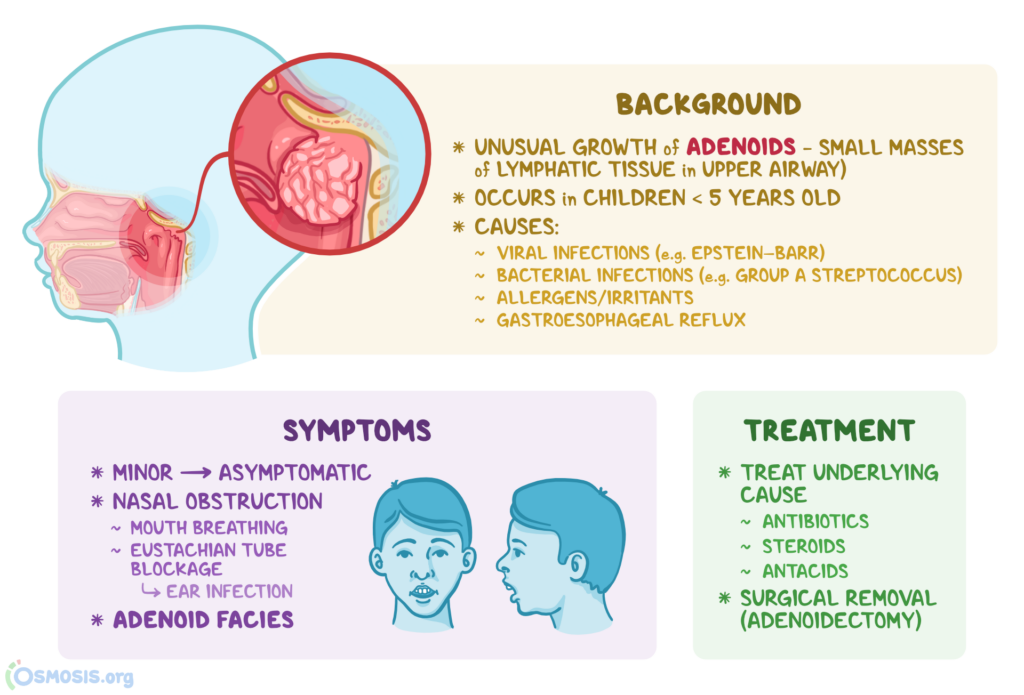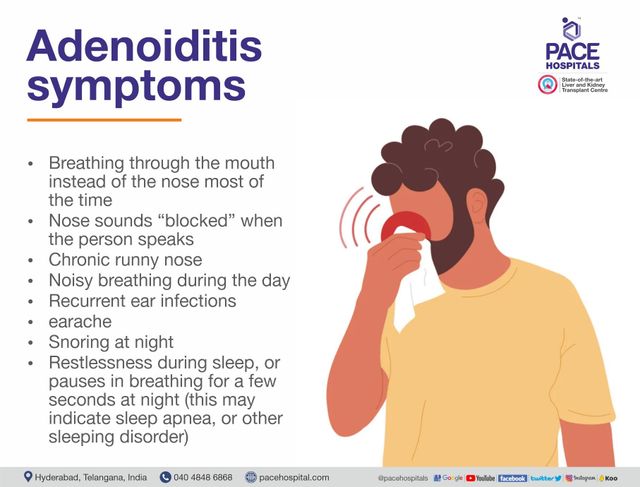You may have heard of adenoiditis, but do you really know what causes it and what complications it can lead to? In this article, we will shed light on this common condition that affects the adenoids, and tissue at the back of the throat, and provide insights into its causes and potential complications. By understanding the factors behind adenoiditis and its potential impact, you will be equipped with the knowledge needed to take preventive measures and seek appropriate treatment if necessary. So let’s dive in and explore the world of adenoiditis together!

Adenoiditis: Causes and Complications
Adenoiditis is a common condition that can cause discomfort and other health issues. In this article, we will discuss the causes and potential complications of adenoiditis. By understanding the underlying factors and recognizing the potential risks, you can take appropriate steps to prevent and manage this condition effectively.
Overview of Adenoiditis
Adenoiditis refers to the inflammation of the adenoids, which are a part of the lymphatic system in the back of the nose. The adenoids help fight off infections by trapping bacteria and viruses that enter the body through the nose. However, when the adenoids become infected or swollen, they can cause symptoms such as a sore throat, nasal congestion, and difficulty breathing.

Definition of Adenoiditis
Adenoiditis is a condition characterized by the inflammation of the adenoids. It is primarily caused by viral or bacterial infections, although allergies can also contribute to its development. Adenoiditis is commonly seen in children, as their adenoids are more active in fighting off infections.
Anatomy of Adenoids
To understand adenoiditis better, it is important to have knowledge of the anatomy of the adenoids. The adenoids are a collection of lymphoid tissues located at the back of the nasal passage, near the opening of the Eustachian tube. They are part of the body’s immune system and play a crucial role in preventing infections. However, when they become infected or swollen, they can cause various health issues.

Causes of Adenoiditis
Viral Infections
One of the primary causes of adenoiditis is viral infections. Common viruses such as the rhinovirus, adenovirus, and influenza viruses can cause inflammation of the adenoids. These viruses can be easily contracted through direct contact with an infected person or by touching contaminated surfaces.
Bacterial Infections
Bacterial infections, such as streptococcus or staphylococcus, can also lead to adenoiditis. These bacteria can enter the body through the nose and cause an infection in the adenoids. Bacterial adenoiditis is often more severe and requires prompt medical attention.
Allergies
In addition to viral and bacterial infections, allergies can contribute to the development of adenoiditis. Allergens such as dust mites, pollen, and pet dander can irritate the adenoids, leading to inflammation and swelling. This can make the adenoids more susceptible to infections.
Signs and Symptoms of Adenoiditis
Adenoiditis can cause a range of symptoms that can vary in severity. Common signs and symptoms of adenoiditis include:
- Sore throat
- Difficulty swallowing
- Nasal congestion
- Runny nose
- Snoring or breathing through the mouth
- Ear pain or pressure
- Chronic cough
- Bad breath
- Fever
If you or your child experiences any of these symptoms, it is important to seek medical attention for a proper diagnosis and treatment.

Diagnosing Adenoiditis
To diagnose adenoiditis, healthcare professionals will typically perform the following:
Physical Examination
During a physical examination, the healthcare provider will examine the back of the throat and nasal passages to look for signs of inflammation or swelling. They may also check for the presence of enlarged adenoids.
Medical History
Your medical history is crucial in identifying the potential causes and risk factors for adenoiditis. The healthcare provider will inquire about your symptoms, their duration, and any previous episodes of adenoiditis or related conditions.
Diagnostic Tests
In some cases, diagnostic tests may be necessary to confirm the diagnosis. These tests can include a throat culture, blood tests, or imaging studies such as X-rays or a computed tomography (CT) scan. These tests can help determine the extent of the inflammation and any potential complications.
Treatment Options for Adenoiditis
The treatment options for adenoiditis depend on the severity of the condition and any associated complications. Common treatment approaches include:
Medications
Mild cases of adenoiditis can be treated with over-the-counter pain relievers, such as acetaminophen or ibuprofen, to alleviate symptoms such as sore throat or fever. Nasal decongestants or saline nasal sprays can help alleviate nasal congestion.
Antibiotics
If the adenoiditis is caused by a bacterial infection, the healthcare provider may prescribe antibiotics to eliminate the infection. It is essential to complete the full course of antibiotics as prescribed to ensure the infection is completely eradicated.
Surgical Intervention
In severe or recurrent cases of adenoiditis, surgical intervention may be required. Adenoidectomy is a common surgical procedure that involves removing the inflamed or infected adenoids. This surgery is usually performed under general anesthesia and is effective in reducing symptoms and preventing further complications.
Potential Complications of Adenoiditis
Failure to treat adenoiditis promptly can lead to various complications. Some potential complications of adenoiditis include:
Recurrent Ear Infections
When the adenoids become infected or swollen, they can block the Eustachian tube, which connects the middle ear to the back of the throat. This blockage can lead to recurrent ear infections, which can cause hearing loss if left untreated.
Obstructive Sleep Apnea
Enlarged adenoids can obstruct the airway during sleep, leading to symptoms of obstructive sleep apnea. This condition can cause interrupted breathing during sleep, leading to poor sleep quality, daytime fatigue, and other health issues.
Chronic Sinus Infections
Adenoiditis can contribute to chronic sinus infections. The inflamed adenoids can block the sinus openings, preventing proper drainage and causing a buildup of mucus. This can lead to recurring sinus infections, facial pain, and pressure.
Middle Ear Effusion
Adenoiditis can cause the accumulation of fluid in the middle ear, a condition known as middle ear effusion. This can lead to temporary hearing loss, ear pain, and a feeling of fullness in the ears.
Enlarged Adenoids
Chronic or recurrent adenoiditis can result in the enlargement of the adenoids. Enlarged adenoids can cause difficulty breathing, frequent snoring, and sleep disturbances.
Adenoiditis can significantly impact your quality of life and overall health. By understanding the causes and potential complications, you can take appropriate measures to prevent and manage this condition effectively. If you or your child experience symptoms of adenoiditis, it is essential to seek medical attention for an accurate diagnosis and appropriate treatment. With timely intervention, you can alleviate symptoms, reduce the risk of complications, and improve your overall well-being.
Watch This Video Below
Related Terms About Adenoiditis Causes and Complications
3 Year Old Adenoid Problems, 4 Year Old Adenoid Problems, Adenoid Locations, Adenoiditis Causes, Adenoids Cause Cancer, Adenoids Cause Cough, Adenoids Cause Ear Infections, Adenoids Cause Runny Nose, Adenoids Cause Sinus Infection, Adenoids Cause Sleep Apnea
